Of ten-planet bowling and pterodactyls
The Language of the Stars: The Scientific Story of a Few Billion Years in a Few Hundred Pages
by Nathan Hellner-Mestelman
Montreal: Linda Leith Publishing, 2025
$24.95 / 9781773901718
Reviewed by Ron Verzuh
*
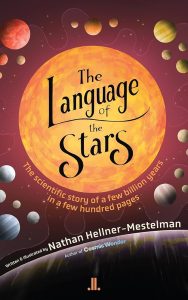
One sure way to grab a young adult reader’s attention on the subject of the cosmos is to begin with beer. That’s what 17-year-old science whiz Nathan Hellner-Mestelman (Cosmic Wonder) did before moving on to chocolate to describe dark matter and entropy. That’s right, this is a book about us humans starting at Ground Zero. It’s about the Big Bang and all that came before and after.
Buckle up! Though illustrated by Hellner-Mestelman, this is no children’s book. It is a sophisticated study of the universe that beats out all the experts by setting us straight in common language and with infectious humour. If you want to learn where we started and where we might just finish, Stars is the book for you. Fair warning to the CBC’s space and science expert Bob McDonald: someone is ready to pick up the torch!
I admit that science was not my strong suit in high school. The only science I half-way enjoyed was biology, where our teacher Mr. Soames doted over his fish tanks as we carved up frogs. I wasn’t paying much attention as he droned on about the Big Bang theory, quantum entanglements, and cosmic inflation. (Or for quarks, antiquarks, and Planck length.) Now I wish I had because this book shows that those concepts are important to understanding how the world works.
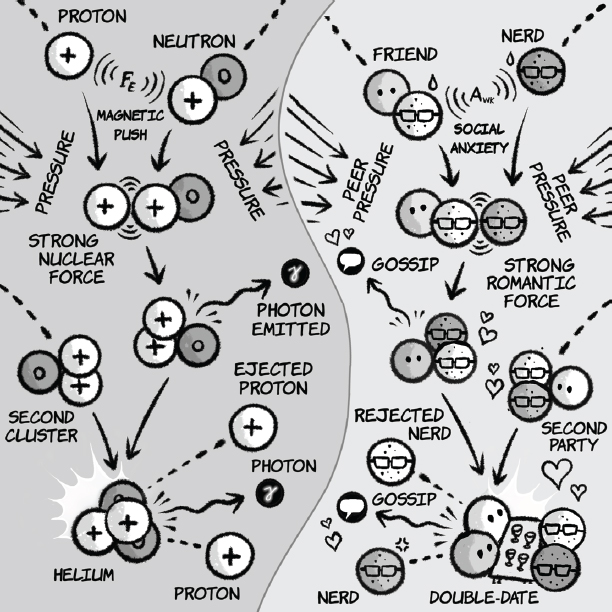
Confused yet? If so, and I was, you are in good company with this brilliant young author. His book overflows with knowledge of the universe and universes beyond ours. As he notes, “Our universe, 380,000 years after the clock started, was a neatly-blended smoothie of hot hydrogen and helium gas.”
From the world’s most powerful telescope to the world’s most powerful microscope, we are guided from the galaxies of outer space to the tiniest organisms that held the DNA of our beginnings on earth. Think Fantastic Fungi but way deeper than the source of mushrooms; we are talking the source of all eternity.
To explain it all, Hellner-Mestelman employs galactic birthdays, cosmic speed limits, and celestial cannibalism. Plus, the Gaia Sausage galaxy and supernovas. “Nebulas are like cosmic rainclouds,” he says, “and stars are their raindrops.”
We’ve all heard of black holes, right? Well, you are going to hear a lot more about them from Hellner-Mestelman: “That’s all a black hole is, truth be told: just a small pocket of space being dragged downward faster than light.”
Ever wonder how Earth really began? Here’s an answer: “Call it what you will: bumper stars, ten-planet bowling, major league spaceball—the Earth was born in the largest collision derby in the history of our star system.”
Using humour, fun, and imaginative comparisons, Hellner-Mestelman guides us from planets to asteroids to suns and moons of other galaxies in a romp through time and space. “If there were a universal cookbook, life on Earth would be a salad, dressed in water and tossed in a blast furnace,” he exclaims.
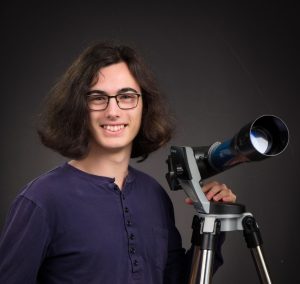
The Victoria-based writer also debunks some myths, suggesting that humans could be the “distant cousins of mosquitoes” and that “pterosaurs and pterodactyls weren’t even true dinosaurs, despite what children’s books continue to spout. Chickens, on the other hand, are.” Did you know that “Mitochondrial Eve [is] at the root of our family tree” or that “our nearest celestial neighbour [is] Proxima Centauri”?
In our ceaseless search for life on other planets, we have sent time capsules on missions into space. “Maybe the Golden Record and the Pioneer Plaque were less about sending a greeting to aliens, and more a reflection of how we wanted to see ourselves,” he suggests. “The missions demanded us to think not in English or French or any one of the world’s seven thousand spoken languages, but in a cosmic code that even alien races might decipher one day.”
Are we alone? Scientists have long pondered the question. In Language, Hellner-Mestelman explores that possibility, but the mystery continues: “Across all those galaxies, stars, and planets, only one world is unequivocally, hands-down, one-hundred-percent known to harbour life. And we’re living on it.”
Doubts about the author’s scientific know-how should be dashed by his extensive bibliography, not to mention the number of space experts, Galileo among them, that he cites throughout the book. This kid knows his quirks and quarks. Plus, he illustrates his scientific knowledge with cartoon-like drawings.
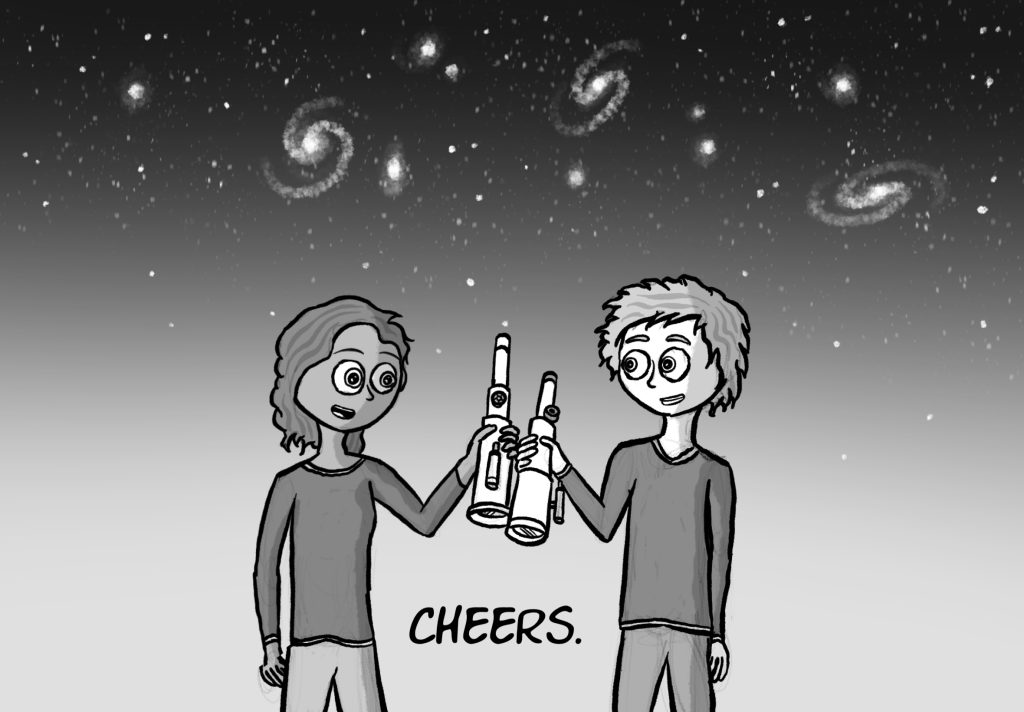
He also knows that “astronomy is so essential in our world . . . that it’s a way of seeing . . . a perspective that no other vantage point can offer. It’s like a set of eyes for our entire civilization.”
And he knows the peril Earth finds itself in. “Would the world take a different stance on war, the climate, and human welfare if our admirals, prime ministers, and presidents could really see just how unimaginably fragile the Earth is?”
[Editor’s note: at Bolen Books in Victoria, Nathan Hellner-Mestelman will launch The Language of the Stars on Tuesday, April 8, 7-8:30. Tickets start at $5.00.]

*
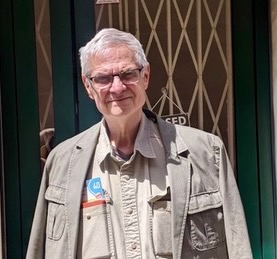
Ron Verzuh is a writer and historian. [Editor’s note: Ron has recently reviewed books by Dietrich Kalteis, Graeme Menzies, Ron Base and Prudence Emery, Geoff Mynett, John Moore, Tom Langford, Ron Thompson, John Ibbitson (ed.), and Bob McDonald for BCR.]
*
The British Columbia Review
Interim Editors, 2023-26: Trevor Marc Hughes (non-fiction), Brett Josef Grubisic (fiction and poetry)
Publisher: Richard Mackie
Formerly The Ormsby Review, The British Columbia Review is an online book review and journal service for BC writers and readers. The Advisory Board now consists of Jean Barman, Wade Davis, Robin Fisher, Barry Gough, Hugh Johnston, Kathy Mezei, Patricia Roy, and Graeme Wynn. Provincial Government Patron (since September 2018): Creative BC. Honorary Patron: Yosef Wosk. Scholarly Patron: SFU Graduate Liberal Studies. The British Columbia Review was founded in 2016 by Richard Mackie and Alan Twigg.
“Only connect.” – E.M. Forster